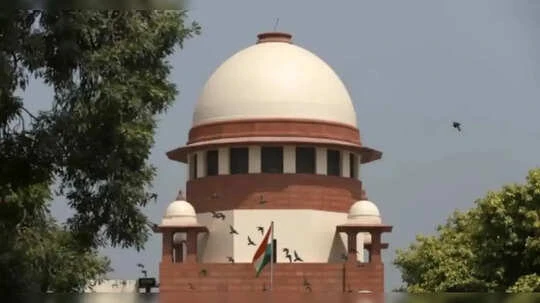New Delhi: The Centre has told Supreme Court that the age of consent for sex cannot be lowered from 18 years, but conceded that judicial discretion can be exercised on a “case-by-case basis” in instances of adolescent romantic and physical relationships.
The union government said that statutory age of consent must be strictly and uniformly enforced to protect minors from sexual abuse.
“The statutory age of consent fixed at 18 years must be strictly and uniformly enforced. Any departure from this standard, even in the name of reform or adolescent autonomy, would amount to rolling back decades of progress in child protection law, and undermine the deterrent character of laws like Pocso Act, 2012, and BNS,” the Centre said, according to Times of India.
Loosening age-based protections, the government said, could open avenues for abuse (rape) under the guise of consensual (sexual) activity.
The comprehensive written submission by the Centre, settled by additional solicitor general Aishwarya Bhati, also detailed how the age of consent increased from 10 years in Indian Penal Code, 1860; to 12 years under the Age of Consent Act, 1891; 14 years in an amendment to IPC in 1925 and Sharda Act (Child Marriage Restraint law) of 1929; to 16 years in a 1940 amendment to IPC and 18 years in 1978 through amendment to Child Marriage Restraint Act which has remained in force till date.
“The age of consent under Indian law, fixed at 18 years, represents a carefully considered legislative choice aimed at creating a non-negotiable protective framework for children. This flows from the inherent protection provided to children envisaged under the Constitution of India,” govt said.
It added that the judiciary, on a case-by-case basis, could exercise discretion, including the close-in-age exception for those nearing 18 years and engaged in adolescence romance. “The legislative framework governing child sexual offences, particularly under Pocso Act, 2012, is premised not only on the vulnerability of the child due to age, but also on the recognition that a majority of such offences are committed by persons within the child’s immediate environment of trust, including family members, neighbours, caregivers and teachers. Such perpetrators have a strong influence on the authority and agency of the minors,” Centre was quoted as saying in the report.
Citing data collated by National Crime Records Bureau (NCRB) and NGOs like Save the Children and HAQ Centre for Child Rights, the Centre indicated that over 50% of sexual offences against children were perpetrated by persons known to the child or those who were trusted by the minors.
It warned that lowering the age of consent from 18 years, under the guise of adolescent romance, would be legally unsound and provide a defence to the abusers.
“A child’s inability to report or resist is exacerbated when the perpetrator is a parent or close family member. In such cases, presenting ‘consent’ as a defence only victimises the child, shifts the blame onto them, and undermines the very object of Pocso Act to protect children from exploitation regardless of whether they were ‘willing,” it said.
